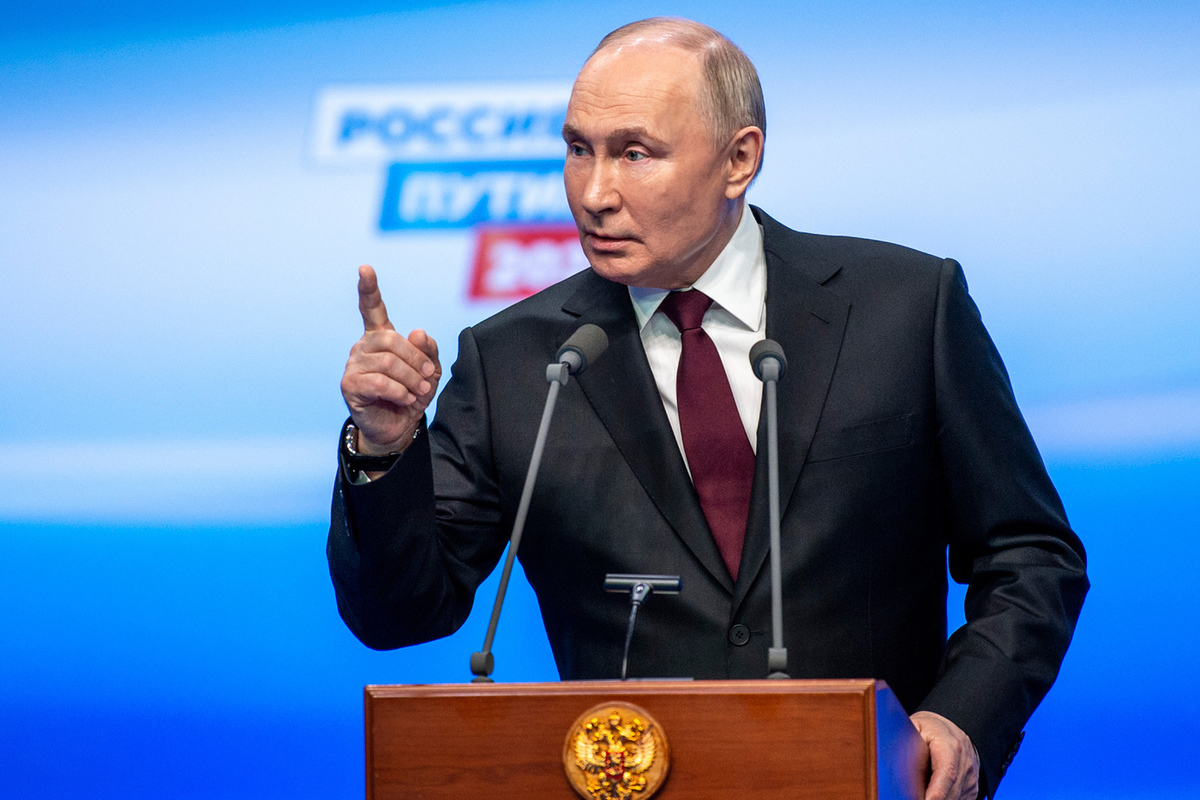The main economic priorities of Putin’s new presidential term have been named
[ad_1]

With the new term of Vladimir Putin’s presidency, the country’s economy faces new challenges. The question is whether the government will be able to correctly and effectively use its capabilities. Anti-Russian sanctions have not gone away and, apparently, will persist for a long time. We asked experts about where the elected president should start a new “economic page.”
According to experts interviewed by MK, President Putin’s future economic policy does not contain any special intrigues or surprises. Moreover, it was described in sufficient detail quite recently – during his address to the Federal Assembly, where economic horizons were predicted until 2030. Let us recall that at that time the president, in particular, set the task of gradually reducing the share of imports in the country’s GDP to 17%, increasing non-resource, non-energy exports by two-thirds and exports of agricultural products by 50%. Also among the priorities is the fight against poverty and increasing the minimum wage to 35 thousand rubles, modernizing the tax system in favor of the poor.
“In the economy, everything will go as stated in the President’s message to the Federal Assembly,” says Alexander Safonov, a professor at the Financial University under the Government of the Russian Federation. – Social issues will be put at the forefront, without which we will not be able to do anything in the future.
National projects on demography and poverty alleviation will be implemented in the country. And, as the president said, further sovereignty of our economy. These two areas will be key for the country’s economic development in the coming years.
– Taking into account the current geopolitical situation, are the announced goals really feasible?
– If you look at the experience of China, then why not? The Celestial Empire was able to solve the problem of poverty, and so can we.
– Will a progressive tax scale help?
– It is not yet known in what format it will be introduced. If it affects only rich Russians, it will be one story. If it extends to the poor, from the point of view of reducing the tax burden for them, then it will be different. The question is which path the government will take. We need to fight poverty without worsening the situation of the middle class.
Another important question for experts is how important is it from an economic point of view to maintain stability or are some decisive steps needed to accelerate the development of the country?
“The current stability of our economy and even some of its growth is explained not only by fairly high oil prices,” says Igor Nikolaev, chief researcher at the Institute of Economics of the Russian Academy of Sciences. – . The fact that the economy retains its market character also plays an important role. It is flexible and adaptable to sanctions and other emergency situations. In my opinion, the task of the authorities is to preserve and not lose this market power. If it is lost, the mechanism that keeps the economy going will also break down.
– What, are there such prerequisites?
– Increasingly, from high stands they are talking about the nationalization of some enterprises, many are demanding strengthening of government regulation, including in foreign economic activity. And, as you know, we are introducing bans on the export of certain goods. Starting next year, the moratorium on control inspections of companies and organizations, which has been in effect since the coronavirus pandemic, will end. All these signals cause some concern; it seems that the role of market mechanisms is declining. This means that the economy will not be able to adapt to external risks. I believe that this cannot be allowed to happen in the coming period.
– Well, specifically, what steps should the authorities take in order for the economy to grow?
– I would say from the search for money. Judging by the adopted federal budget, next year expenses in nominal terms will be seriously reduced, by 6%. Therefore, one of the main questions is where to get the money? Without them, the implementation of already announced plans may be difficult.
Finance Minister Anton Siluanov recently announced a revision of revenues from the privatization of state property in 2024. Initially they were planned in the amount of one billion rubles, now they have been revised and 100 billion are expected.
Based on the adopted and approved federal budget, the fiscal impulse that supported the Russian economy is now gradually drying up. This means that the new government will have to offer something in return so that our economy continues to grow.
[ad_2]
Source link






